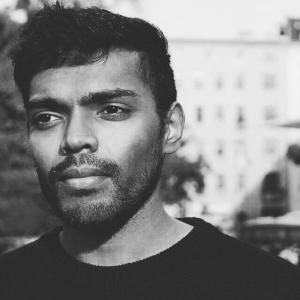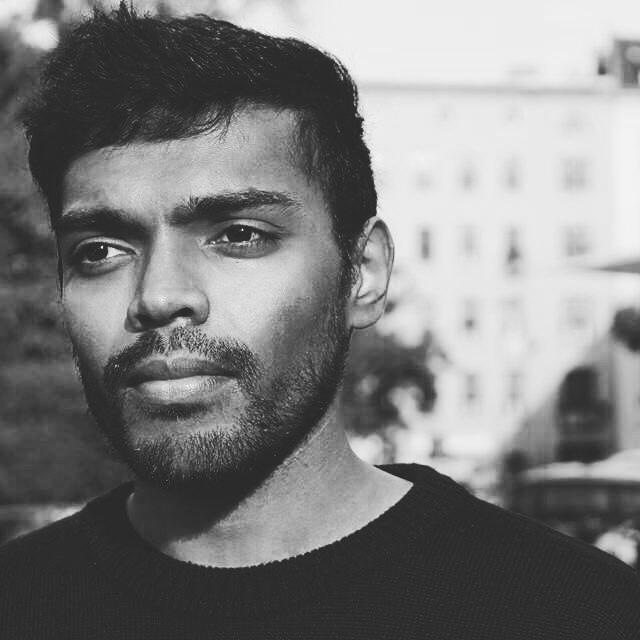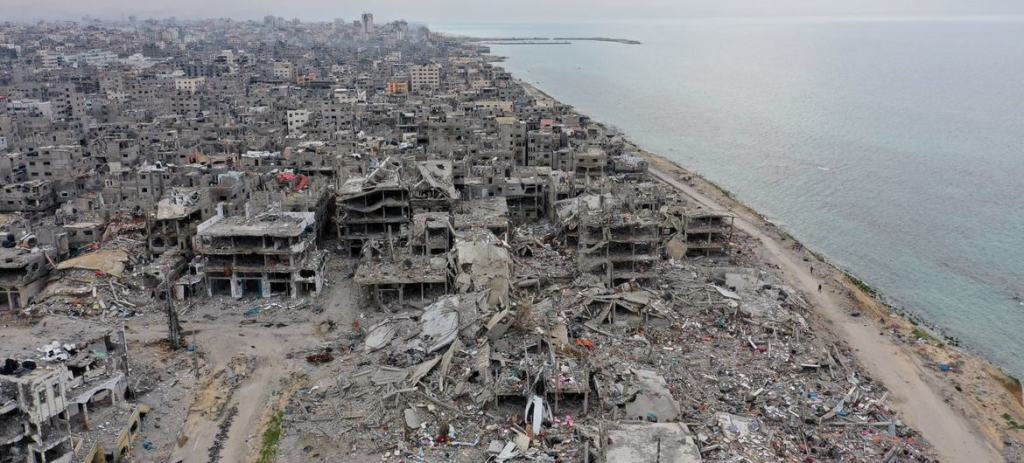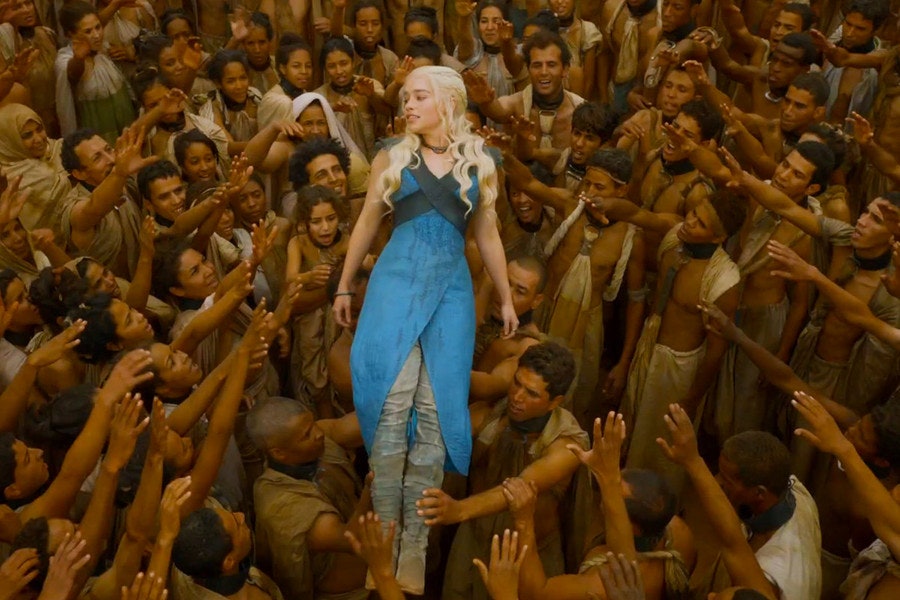by Sinthujan Varatharajah Follow @varathas
A few days ago, I was sitting with a friend, we were casually chatting when I suddenly remembered that her father is a writer – as is my mother. I remembered that we somehow knew each other through our parents who again knew each other through diasporic writers’ circles. We laughed about it, about these close, almost exclusive circles that we unconsciously frequent. We were  both the children of writers who write in a non-European language. Yet we never framed ourselves as such, hardly see ourselves as such and rarely tell others, particularly non-Tamils about this part of us or them. Not even friends. I had to remember that her father is a writer, like I sometimes have to remember that my mother is one. I started to think about the diasporic people I had known for years, others who I got to know more recently, and began to count how many of their parents are Tamil language writers and artists. Unsurprisingly there were a countless number of them that I knew. And there are probably more who have never told me, who maybe don’t even know themselves.
both the children of writers who write in a non-European language. Yet we never framed ourselves as such, hardly see ourselves as such and rarely tell others, particularly non-Tamils about this part of us or them. Not even friends. I had to remember that her father is a writer, like I sometimes have to remember that my mother is one. I started to think about the diasporic people I had known for years, others who I got to know more recently, and began to count how many of their parents are Tamil language writers and artists. Unsurprisingly there were a countless number of them that I knew. And there are probably more who have never told me, who maybe don’t even know themselves.
I never thought I grew up amongst artists. I thought these circles were closed off to me, that they wouldn’t permit or tolerate my presence. That I wouldn’t suit them. I remember how I felt about a German girl from school, whose writer mother won a renowned German-language literary prize, and who was always seen in the light of this legacy. She carried herself like I’d imagine the child of a recognized artist would do. Her mother’s literary acclaim resonated somewhere: in the ways teachers saw her, in the ways students saw her and in the way I saw her. I thought I could read it from her posture. A posture I could never have. My mother’s achievements hardly ever provoked any response by a majority white society. Whether in the way she was seen or I. For them she was a cleaner not a writer. As if you can’t be both.
Her Tamil literary successes could never be translated, could never find meaning outside this narrow space that was estranged to me as well as my close surrounding. When non-Tamils friends asked me, I sometimes dared to tell them that my mother writes poetry and short stories, or used to, but I hardly ever said, ‘she is a writer’. I said she is a poet, but not a writer. I thought the weight of the term writer was too large, too heavy to use, to unwieldy for me to ‘justify’ its use to describe my mother. She was a writer, ‘but’ a Tamil language one. ‘Does that even exist?’ I sometimes thought I read on others lips. ‘You’ve a literary culture?’ is what I could often hear between their words. What value does it produce for ‘world literature’? Can I read her? No, well, then she isn’t a writer. Or it’s just a pity. Can she live off her writing? No? So she cleans? She is a cleaner then, isn’t she? I reacted by increasingly muting, censoring and removing the words writer and poet from my vocabulary.
When my mother started to write in the mid ‘90s, I began to walk through life differently. Ashamed of what our lives had become in exile, I felt that her creative talents elevated us, reformed us and helped us to resist the racist, casteist gaze that followed us throughout life. My mother was a writer to me and I encouraged her to write not just for herself but for all of us. With each piece she read out on Tamil radio stations, with each piece printed, reviewed and acclaimed, I felt we gained in weight – we gained in dignity. We reclaimed what people took away from us. Our mother did it for herself, for all of us. I remember how much it meant to me to watch my mother at night, after going to work, after cooking for us, cleaning after us, teaching us, sitting at the kitchen table until 3AM or 4AM at a table covered with sheets of white paper with words written, crossed out and rewritten in a language I never mastered. After these long writing sessions she was, to my surprise, never tired, but instead full of life before embarking for another shift of work. She would ask me about my opinions, she would ask me to sit and listen to her read. I sometimes understood, I sometimes didn’t. Sometimes she had to translate a word for me, sometimes I crankily told her that ‘I’m not a baby, you don’t need to translate this for me.’ Yet she translated, she felt the need to translate whether needed or not, wanted or not. She understood that translation is crucial for her work to be recognized, for her to be recognized by almost everyone. Including her children and herself.
She was a writer, but her writing had little meaning outside of our house. I was proud of her but that pride hardly permeated into the outside of what I call the Tamil part of my life. Her works remain un-translated and so do large parts of our lives. It was a parallel world that felt surreal, as did many parts of our lives when narrated to white friends. Once she was interviewed by a local German paper about her writing. For the first time I felt that there was a translation of her, of us. That this will leave a lasting impression. But it didn’t. It was as quickly forgotten as it was printed. When she ran for city council a few weeks ago, they asked what her profession is. She was subsequently described as a Schrifsteller (writer). I smiled when I was saw it, but in my heart knew that people don’t see her as such. They see her work in factories, they see her clean houses and pubs, and sometimes we ourselves, her children, forget too. Sometimes even she does.

A few months back my brother began writing his first novel in German. He is already being recognized for his talents and courted by German literary institutions, publishing agents and a publishing house, while his writing has not even yet been published. Ironically he was awarded a literary scholarship from the Berliner Akademie der Künste (Berlin Academy of Arts) which had years before, awarded the German girl’s writer mother her literary prize. I see the pride of my mother, I see myself being proud of him. I simultaneously also realize how much outside recognition matters. Our father says, ‘like mother, like sons’. He sees the lineage and sees the possibilities of what we can achieve by writing in a language that isn’t marginal to a world, a language that isn’t diasporic. To write to a world with power and resources. My brother is being recognized for something my mother hardly ever was outside this diasporic box. Yet they are both writers, even if treated and perceived very differently. He writes in a language that is more accessible and better situated in the geographies we have been displaced to. My mother’s writing reached back to a different kind of geography of words and meanings. A geography which somehow never permeated into majority society.
We quickly lose ourselves in these worlds, between translations and dominant narrations. I sometimes forget to recognize the weight the outside has on the inside. When I think about it now, it all somehow makes sense to me. I grew up amongst artists without being conscious of it. I grew up amongst writers who were also factory workers and cleaners. I was inside of it without knowing what I was inside of. I’m the child of a writer who may never be translated, who may never be recognized but whose life matters, whose work matters – even if it is just to us. There are many like us, many like her and they are here to tell stories in different languages, in non-European ways, but in ways that matter to many. Certainly to me.
_______________________________________________________
All work published on Media Diversified is the intellectual property of its writers. Please do not reproduce, republish or repost any content from this site without express written permission from Media Diversified. For further information, please see our reposting guidelines.
_________________________________________________
Sinthujan Varatharajah is a PhD student in Political Geography at UCL, University of London, and holds a Masters degree in Race, Ethnicity and Postcolonial Studies from the LSE. He is the Founder and Editor-in-Chief of Roots of Diaspora, a narrative project on refugeehood and migration of Tamils from Sri Lanka. Follow him on Twitter at @varathas and Roots of Diaspora at @rootsofdiaspora as well as on Facebook or their forthcoming website: www.rootsofdiaspora.com










Leave a reply to bonfacesagini Cancel reply